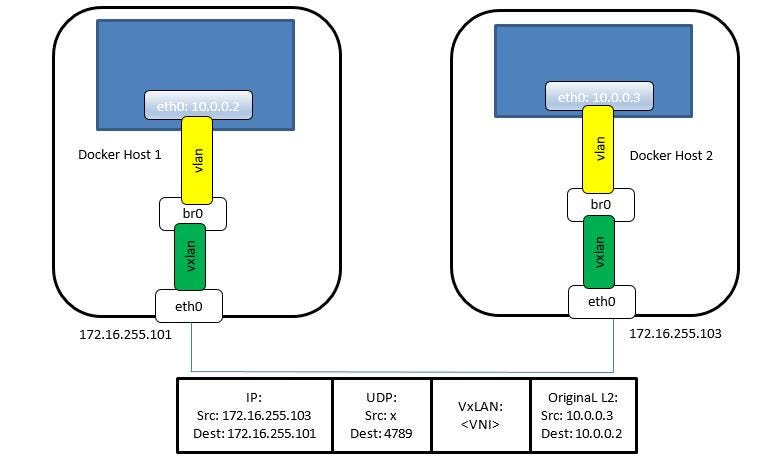

Check Promiscuous Mode if it is necessary due to your network policy.Īfterward, click OK and close the VirtualBox console.Select Bridge Adapter for "Attached to:".One of them has NAT and the other one has the Host-only Adapter. In the Network tab, you can see two adapters available for local-docker-host.

DOCKER NETWORK=HOST HOW TO
Here we are describing how to build it in the VirtualBox hypervisor. Therefore, the only solution will be configuring it manually from the VirtualBox (or any other hypervisor) console. Meanwhile, in the docker-machine command line, we do not have proper switches to create a Docker machine with a birded network adapter. Consequently, we should define another network for our created Docker machine. It is obviously clear that this IP cannot be accessible from our local network. If we use docker-machine IP local-docker-host we will find that the machine will have some IP like 192.168.99.100. From now on, we will call it "local-docker-host." The command will be like this: docker-machine create -d virtualbox local-docker-host

Create a Docker Machineįirst, we need to create a Docker machine. In this article, I will propose a way to make the Docker machine available for any host in the local network. In other words, we can only access the Docker machine from the host which contains the Docker machine. This is due to the fact that the recently-created Docker machine gets its IP address from the host-only adapter network which only is visible from the local host. But the problem is that when we create a Docker machine in the considered host, it cannot be accessible from the other machines in our local network. # removed because of character limitation for forum post.In many cases, we need a central Docker machine hosted in a machine available in our local network. elasticsearch_1 | Bound http to address ], retrying.Įlasticsearch_1 | : connect_exception I want it to connect ideally to the FQDM of the master ( ), or to the ip (). On donkey startup, it can ping meerkat, which replies with its docker-internal IP (172.19.0.3, the same as returned by docker inspect), but then runs into an error as it tries to connect to 172.19.0.3, of course. hosts=ĭocker-compose.yml for donkey (data node): environment: I intend to run node "meerkat" as the master, and node "donkey" as a data node:ĭocker-compose.yml for meerkat (master): environment: Sorry if I'm missing something obvious, I'm not a networking expert at all.

So if someone could help me to find the right network.host setting so that the nodes can find each other using real hostnames or IPs, that would be great. They do find and identify each other, but they cannot connect (I guess the finding uses the .hosts, which are FQDM, and the actual connecting then uses some other mechanism?). But as they do not run on the same machine, they cannot connect to each other. To enable discovery, I specify 0.0.0.0 as network.host, as I cannot bind to the real IP / hostname directly.īut this seems to lead to the nodes trying to find the other nodes using the container IPs from the container network, e.g. I have a question on networking when clustering two ElasticSearch nodes which run on separate machines in docker containers.


 0 kommentar(er)
0 kommentar(er)
